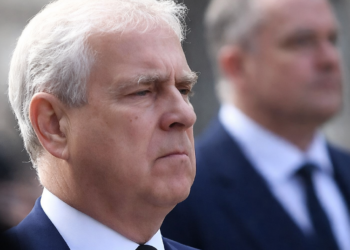The founder of the Foundation for Investigative Journalism (FIJ), Fisayo Soyombo, has disclosed details of his undercover investigation into oil theft in Nigeria. Speaking on Arise TV on Saturday, Soyombo shared his experiences and findings before his operation was compromised by the Nigerian Army.
Undercover Investigation and Arrest
Soyombo revealed that his mission involved going undercover to investigate illegal oil bunkering in Nigeria. Unfortunately, he was apprehended during the process, which disrupted his work. He emphasized that his security was compromised after the Army’s public statement identifying him in connection with illegal bunkerers.

Findings on Oil Theft in Nigeria
Soyombo uncovered shocking details about the deeply entrenched nature of oil theft in Nigeria, including the following:
High-Level Security Cover for Oil Bunkerers
He described the involvement of high-profile individuals and institutions in facilitating illegal oil bunkering. “It would shock you the kind of people who escort illegal oil bunkerers out of Port Harcourt,” Soyombo said, pointing to a systemic issue that includes collaboration from influential individuals in the country.
Underreported Scope of Oil Theft
The journalist stated that the publicly available figures on crude oil theft are grossly underestimated. He revealed an instance where 50,000 barrels of crude oil were set to be transported illegally, suggesting the theft happens at a much larger scale than officially acknowledged.
Complicity Across Sectors
Soyombo highlighted the pervasive corruption in the oil industry, noting that even institutions meant to regulate and supervise the sector are part of the problem. “It is not only oil bunkerers that are thieves but those who are also meant to supervise the sector,” he remarked, calling for a complete overhaul of the system.
Challenges and Risks for Investigative Journalism
Soyombo expressed concerns about his safety following the Army’s disclosure of his identity. He noted that while there are honest individuals in the military, saboteurs within the system enable oil theft to thrive.
Given these risks, he hinted at the possibility of scaling back his investigative work. “This is a new level for me… Rather than change my approach, I will rather stop. Maybe I have one, two, three undercover investigations left, and I will stop,” he said.
A Commendable Feat in Journalism
Despite the challenges, Soyombo’s efforts have been widely praised for shedding light on the rot in Nigeria’s oil sector. His work underscores the importance of exposing systemic corruption and ensuring that citizens can trust the structures governing their country.
Echoes of a Larger Problem
Soyombo’s revelations align with past claims by prominent individuals, such as Aliko Dangote, who described Nigeria’s oil industry as the “biggest cartel” in the country. This cartel allegedly consists of powerful individuals and networks that compromise both the government and the industry.
The Bottom Line
Fisayo Soyombo’s investigation reveals the depth of corruption and systemic failure in Nigeria’s oil sector. His findings not only highlight the complicity of high-ranking officials but also serve as a call to action for reform and accountability.
As Nigeria grapples with the consequences of oil theft, Soyombo’s work stands as a stark reminder of the urgent need for transparency and justice.

















